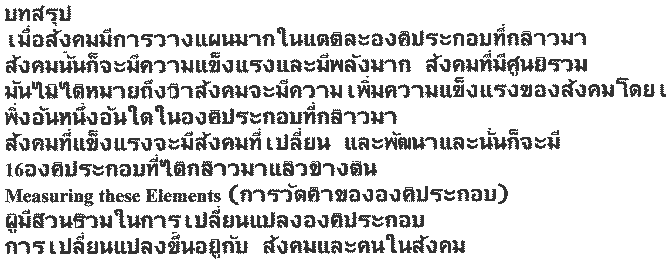


.
|
แปลโดย
เจนจิรา กาญจนจารุรัตน
|

.
|
What
makes a community, organization or family strong?
|
.
When organisations, families and communities
are more and better organised, they are stronger. When they more resemble
a rational, formal organisation, they have greater capacity to achieve
what their members want them to achieve.
If we want to strengthen communities,
families or organizations, how can we know when we have succeeded, or to
what extent? As scientists engaged in social research, how do we
measure the strengthening of them, when they are increasing their capacities,
or becoming more empowered? Unfortunately, we do not have a little electronic
metre that, when it moves from 62 to 79, we can say that strength has increased
by 17 points.
We can analyse the concept of "strength,"
"power" or "capacity," as applied to organisations, families or communities,
look at its various components, and identify a set of observations that
will indicate to us that some empowerment or increase in capacity has taken
place.
The sixteen elements are: altruism;
common values; communal services; confidence; communications; context;
information; intervention; leadership; networking; organisation; political
power; skills; trust; unity; and wealth. These are somewhat more
comprehensive than Weber’s five elements of bureaucratic strength, but
identifying them is based on the same sociological principles used by Weber.
Descriptions of the Sixteen Elements:
.
| ................................. |
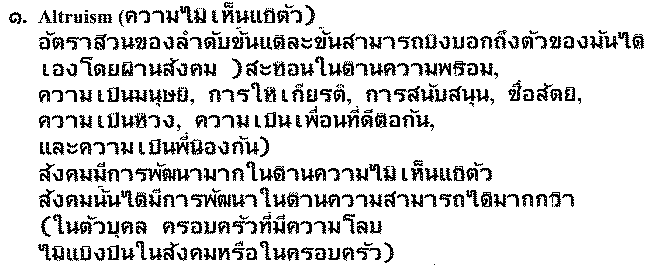 |
|
. |
|
 |
|
. |
|
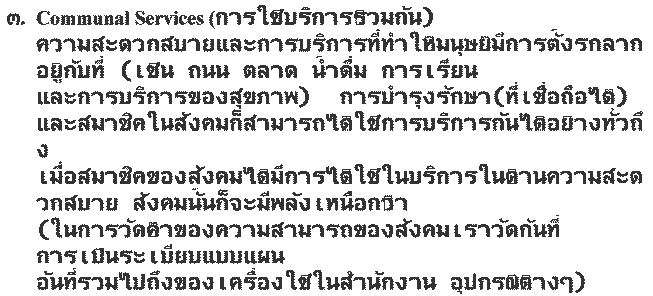 |
|
. |
|
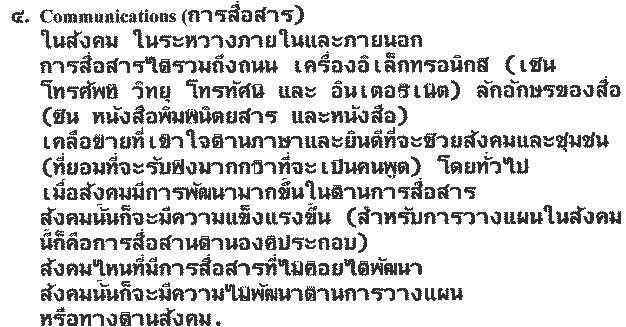 |
|
. |
|
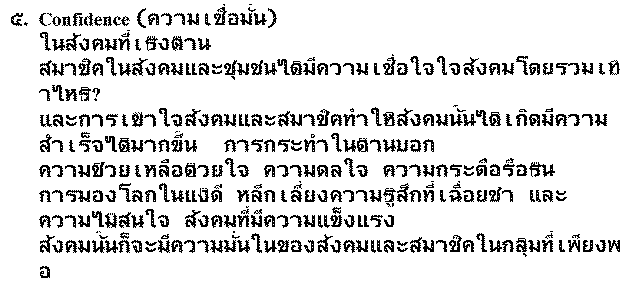 |
|
. |
|
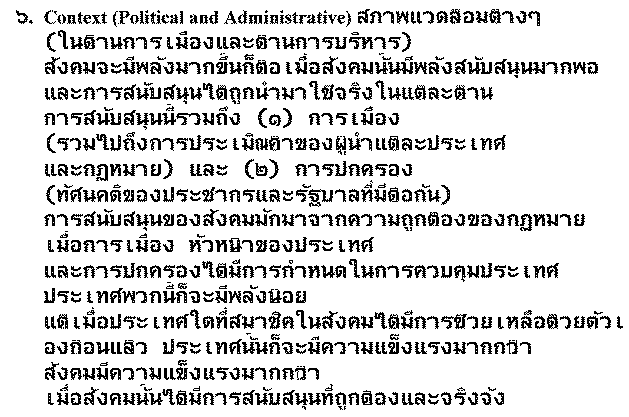 |
|
. |
|
 |
|
. |
|
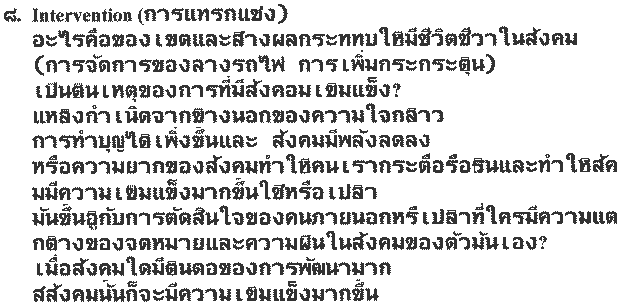 |
|
. |
|
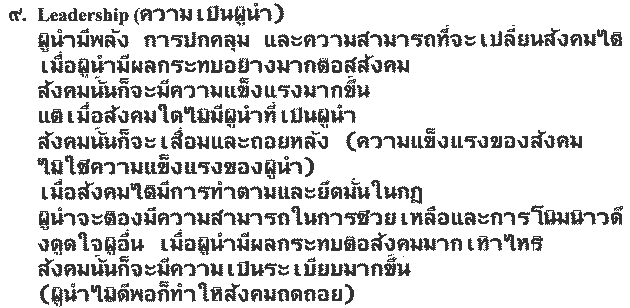 |
|
. |
|
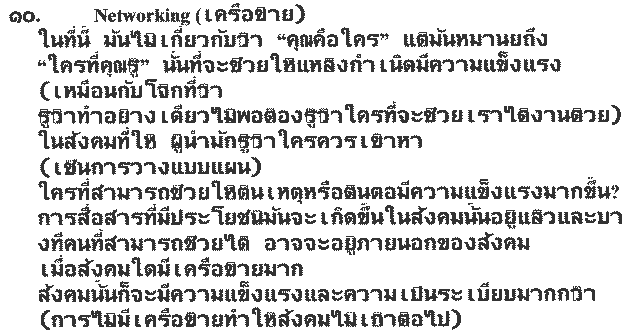 |
|
. |
|
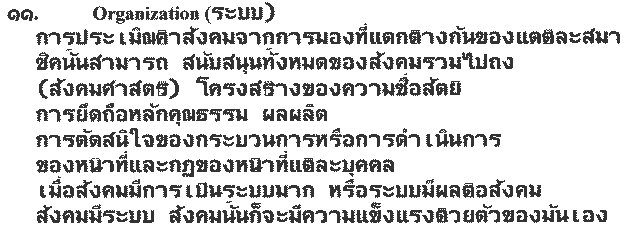 |
|
. |
|
Political
Power: The
power of a
community or organisation is the degree to which it can participate in
national and district decision making. This relates to the political
dimension of culture. Just as individuals have varying power within a community,
so communities and organisations have varying power and influence within
the district and nation. The more political power and influence that
a community or organisation can exercise, the higher level of capacity
it has. |
|
. |
|
 |
|
. |
|
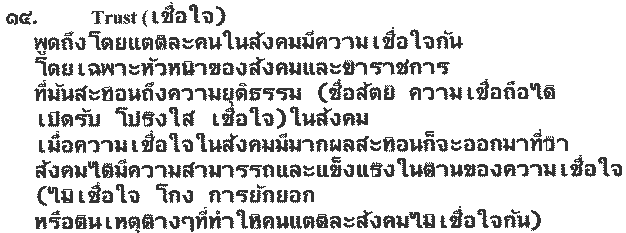 |
|
. |
|
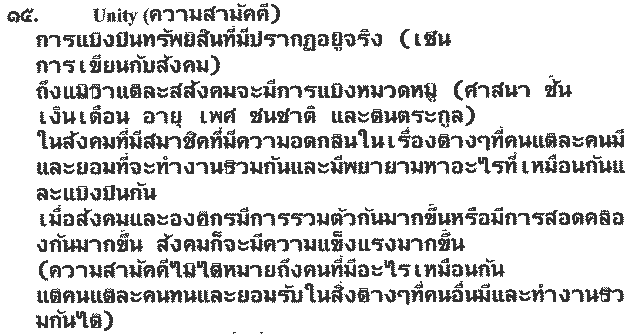 |
|
. |
|
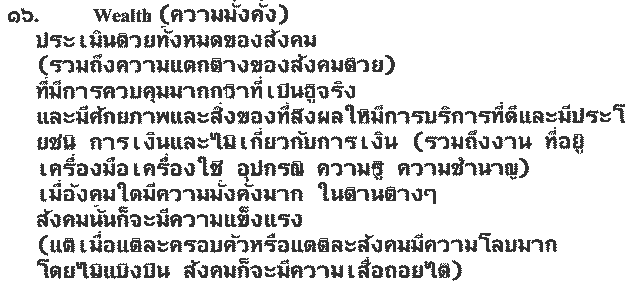 |
.
.
See Economic
Dimension.
.....

|
. 
|
.
 ....
....
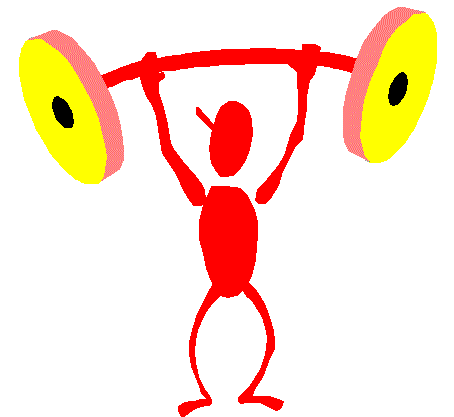
 ....
....

















